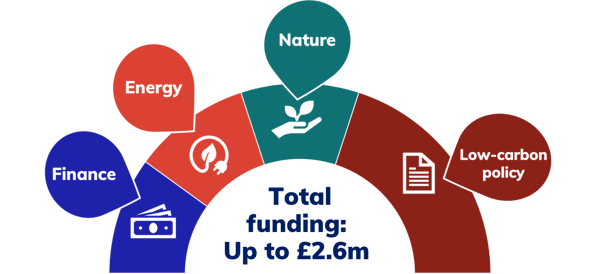Malaysia has seen significant shifts in the climate governance landscape over the last few years and UK PACT is proud to be a partner in supporting Malaysia's ambition and further accelerating climate action.
Malaysia continues to make progress on its international climate commitments, evidenced by the establishment of the Long-Term Low Emissions Development Strategy, NDC Roadmap, the Malaysian National Energy Transition Roadmap and the imminent tabling of its Climate Change Bill, among others, which will drive Malaysia to achieve net-zero emissions by 2050.
Having supported Malaysia from 2020-2023, UK PACT launched phase 2.0 of the Malaysia portfolio in December 2025. The new portfolio is underpinned by the Malaysia-UK Climate Partnership, signed in 2022.
The new, Malaysia-UK PACT 2.0 Fund focuses on unlocking greater quality of climate and nature finance by optimising the enabling environment for clean energy investments and voluntary carbon markets in the forestry sector.
The first iteration of Malaysia-UK PACT included five projects in the following priority sectors for Malaysia:

Our capacity-building projects supported Malaysia to step up its low-carbon and nature preservation transition plans. Watch these videos to discover two impactful projects by Forever Sabah and Rimba.
Our projects were targeted and transformative. Read more below.
UK PACT (Partnering for Accelerated Climate Transitions) is a unique capacity-building programme. Jointly governed and funded by the UK Government’s Foreign, Commonwealth and Development Office (FCDO) and the Department for Energy Security and Net Zero (DESNZ) through the UK's International Climate Finance, it works in partnership with countries with high emissions reduction potential to support them to implement and increase their ambitions for tackling climate change.
© Copyright 2025 UK PACT Privacy Notice Cookie Policy